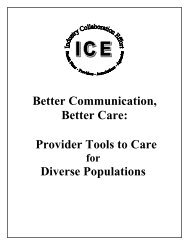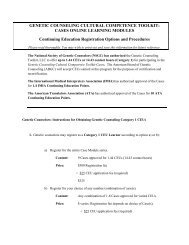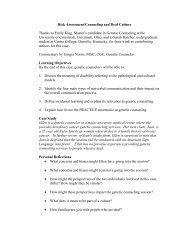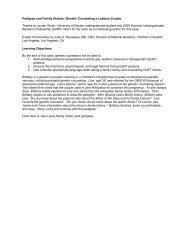making the business case for culturally and linguistically appropriate ...
making the business case for culturally and linguistically appropriate ...
making the business case for culturally and linguistically appropriate ...
You also want an ePaper? Increase the reach of your titles
YUMPU automatically turns print PDFs into web optimized ePapers that Google loves.
APPENDIX N- GlossaryCLAS st<strong>and</strong>ards. The collective set of CLAS m<strong>and</strong>ates, guidelines, <strong>and</strong> recommendationsissued by <strong>the</strong> HHS Office of Minority Health intended to in<strong>for</strong>m, guide, <strong>and</strong> facilitaterequired <strong>and</strong> recommended practices related to <strong>culturally</strong> <strong>and</strong> <strong>linguistically</strong> <strong>appropriate</strong> healthservices. (OMH, 2000)Cultural Competence. Having <strong>the</strong> capacity to function effectively as an individual <strong>and</strong> anorganization within <strong>the</strong> context of <strong>the</strong> cultural beliefs, behaviors <strong>and</strong> needs presented byconsumers <strong>and</strong> <strong>the</strong>ir communities. (OMH, 2000)Culture. “The thoughts, communications, actions, customs, beliefs, values, <strong>and</strong> institutionsof racial, ethnic, religious, or social groups. Culture defines how health care in<strong>for</strong>mation isreceived, how rights <strong>and</strong> protections are exercised, what is considered to be a health problem,how symptoms <strong>and</strong> concerns about <strong>the</strong> problem are expressed, who should provide treatment<strong>for</strong> <strong>the</strong> problem, <strong>and</strong> what type of treatment should be given. In sum, because health care is acultural construct, arising from beliefs about <strong>the</strong> nature of disease <strong>and</strong> <strong>the</strong> human body,cultural issues are actually central in <strong>the</strong> delivery of health services treatment <strong>and</strong> preventiveinterventions. By underst<strong>and</strong>ing, valuing, <strong>and</strong> incorporating <strong>the</strong> cultural differences ofAmerica’s diverse population <strong>and</strong> examining one’s own health-related values <strong>and</strong> beliefs,health care organizations, practitioners, <strong>and</strong> o<strong>the</strong>rs can support a health care system thatresponds <strong>appropriate</strong>ly to, <strong>and</strong> directly serves <strong>the</strong> unique needs of populations whose culturesmay be different from <strong>the</strong> prevailing culture” (OMH, 2000; Katz, Michael. PersonalCommunication, November 1998).Culturally <strong>and</strong> Linguistically Appropriate Services. Health care services that arerespectful of <strong>and</strong> responsive to cultural <strong>and</strong> linguistic needs. (OMH, 2000)Interpreter. A person who translates orally from one language to ano<strong>the</strong>r. (OMH, 2000)Translation. Translation entails transferring ideas written in text from one language (<strong>the</strong>source language) to ano<strong>the</strong>r (<strong>the</strong> target language). (Planning Culturally <strong>and</strong> LinguisticallyAppropriate Services: A Guide <strong>for</strong> Managed Care Plans, CMS, 2000)61



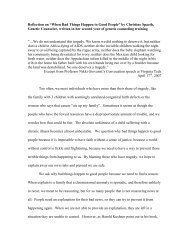
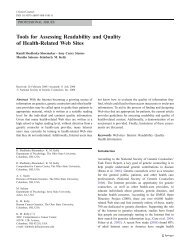

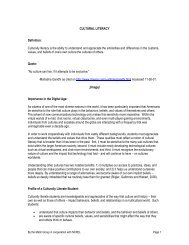
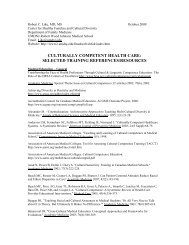
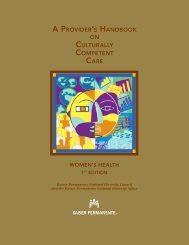
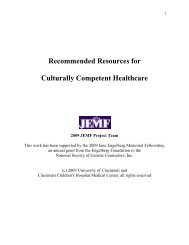
![Breaking Bad News PPT[1] - Genetic Counseling Cultural ...](https://img.yumpu.com/35003134/1/190x146/breaking-bad-news-ppt1-genetic-counseling-cultural-.jpg?quality=85)
